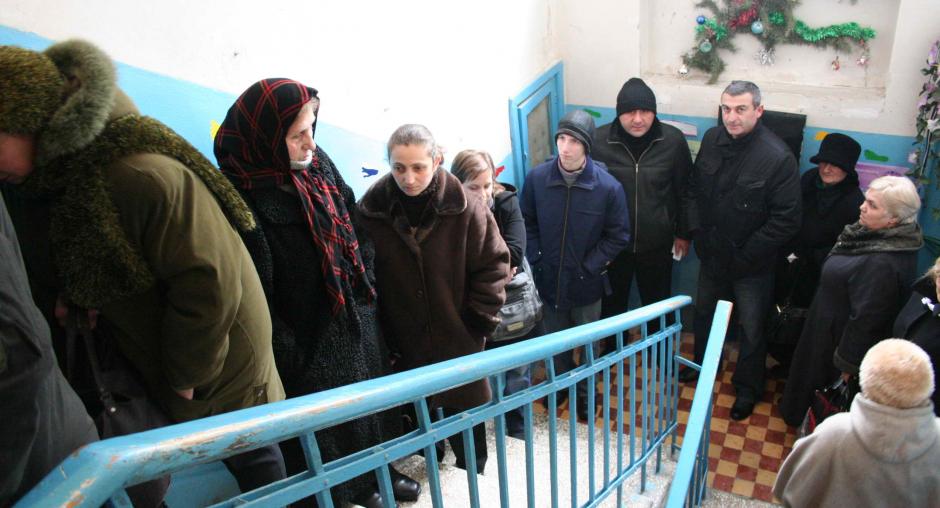Georgian election in essence consistent with most commitments but challenges must be addressed urgently

TBILISI, 6 January 2008 - While the 5 January presidential election in Georgia was in essence consistent with most international standards for democratic elections, significant challenges were revealed which need to be addressed urgently, the International Election Observation Mission concluded in a joint preliminary statement today.
This was the first genuinely competitive presidential election in the country, enabling the Georgian people to express their political choice. The election campaign was conducted in a highly polarized environment, marked by a lack of trust and pervasive allegations of violations. The distinction between state activities and the former President's campaign was sometimes blurred, contributing to an inequitable campaign environment.
Some 85 parliamentarians and 340 short-term observers monitored the election for the OSCE Office for Democratic Institutions and Human Rights (ODIHR), the OSCE Parliamentary Assembly (OSCE PA), the Council of Europe Parliamentary Assembly (PACE) and the European Parliament (EP).
"Because of the demonstrative competitiveness of this campaign, I perceive this election as a viable expression of the free choice of the Georgian people, but the future holds immense challenges," said OSCE PA President Emeritus, Alcee L. Hastings, the Special Co-ordinator of the OSCE short-term election observers.
Matya Eorsi, the Head of the PACE delegation, said: "This election, although clearly not perfect, enabled the Georgian people to give a democratic response to the recent political crisis. Georgians should be congratulated for the commitment they showed on election day to democratic principles. Now it is up to the authorities to hear our criticisms and urgently respond to the significant shortcomings noted. For the sake of the stability of the country I call upon all actors to conclude this election process in a manner that ensures the legitimacy in they eyes of Georgian people."
Marie Anne Isler-Beguin, who headed the EP delegation, said: "This election is another step forward in strengthening Georgia's young and still fragile democracy. For the upcoming legislative elections, as decided by the plebiscite, the necessary lessons have to be taken immediately. The European Union will continue to assist Georgia on this path, in particular with the instruments of the Neighbourhood policy."
The European Neighbourhood Policy was developed in 2004, with the objective of avoiding the emergence of new dividing lines between the enlarged EU and its neighbours and instead strengthening the prosperity, stability and security of all concerned.
Ambassador Dieter Boden, the Head of the OSCE/ODIHR long-term mission, said: "We have noted an election which has been prepared in a professional manner but we would do a disservice to Georgian democracy if we did not also speak out openly where it was not in line with OSCE commitments, such as cases of intimidation. Those are challenges which should be addressed urgently and through the appropriate channels."
Despite the short timeframe, the Central Election Commission prepared the election in an overall professional manner, operating transparently and carrying out an extensive voter education campaign. However, on contentious issues, its members acted in a partisan manner, not always observing the neutrality required of an election administration.
The campaign was overshadowed by widespread allegations of intimidation and pressure, a number of which were substantiated. The implementation of social welfare programmes was frequently combined with campaigning for the former President.
In most polling stations visited, election day was organized and relatively peaceful but with significant regional variations and isolated cases of serious violations. In some precincts the process was chaotic and with procedural problems, in particular relating to inking, a safeguard measure against multiple voting. Some 5 per cent of voters were added to the voter list on election day. Observers evaluated the counting less positively, noting a slow process and procedural shortcomings.
For further information, please contact:
Urdur Gunnarsdottir, OSCE/ODIHR Spokeswoman (+48-603-683 122);
Andreas Baker, OSCE PA (+45-60 1080 30);
Bas Klein, PACE (+33-6622 65489);
Stefan Pfitzner, European Parliament (+32-498 983 295)
